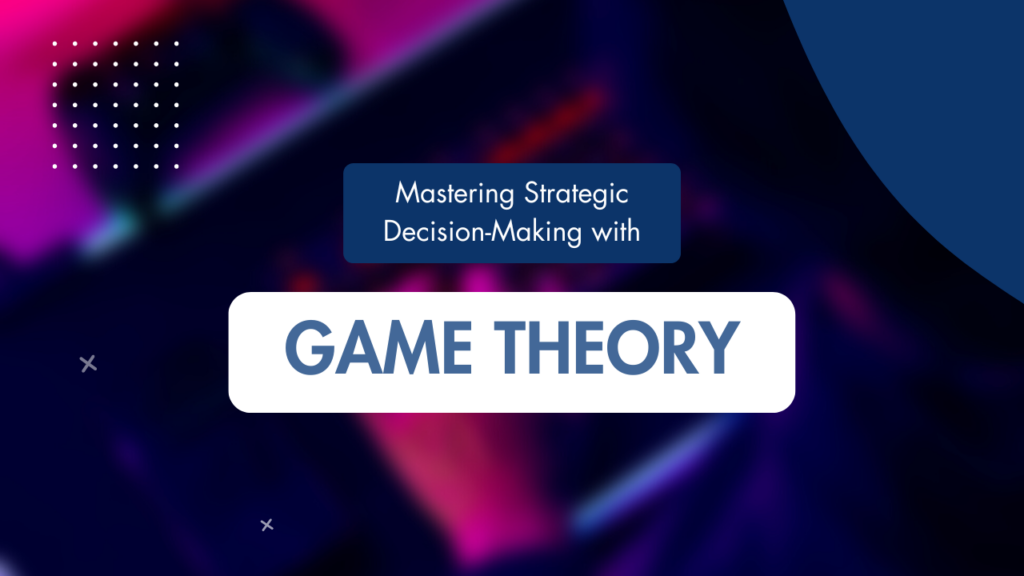For the strategic chess game of business, where foresight, adaptability, and Game Theory emerge as a powerful tool. This mathematical and psychological framework shifts the paradigm from predicting outcomes to actively crafting them. It is also promoting a cooperative rather than combative approach to business strategy. By recognizing the rational pursuit of self-interest among all participants and the intertwined nature of their outcomes, Game Theory moves beyond the confines of win-lose scenarios to champion strategies where everyone gains more.
Exploring the Nuances of Game Theory:
At its core, Game Theory posits that all stakeholders are rational actors, motivated by the maximization of their own benefits. It highlights the interconnectedness of decisions, where the success of one player is intricately linked to the strategies of others. Crucially, it challenges the traditional view of competition as a zero-sum game, advocating instead for a collaborative effort to ‘expand the pie’. It also advocates to create greater value for all involved.
Transforming Competition into Cooperation:
Directors and managers leverage Game Theory to elevate strategic engagements, turning potential rivalries into opportunities for mutual growth:
In strategic negotiations, it guides toward solutions that benefit all parties, laying the groundwork for lasting partnerships.
It serves as a decision-making compass, steering through complex choices with an eye not just on immediate rewards but on sustainable advantage.
By reimagining competitive dynamics, it encourages innovation and internal collaboration, fostering a culture where collective success is the ultimate goal.
Practical Implementation of Game Theory:
Embracing Game Theory demands more than just understanding its principles. It requires a fundamental shift in how we approach strategy and problem-solving:
Experts encourage strategic thinking, always anticipating the potential moves and countermoves of our counterparts.
Open dialogue is key, as it helps unveil common goals and opportunities for synergy.
A commitment to continuous learning ensures we remain at the cutting edge of strategic thought, constantly refining our approach to stay ahead in a rapidly evolving landscape.
Conclusion:
Game Theory is not merely a conceptual framework but the cornerstone of a strategic philosophy. It empowers one to navigate the complexities of business with a mindset geared toward mutual prosperity. By viewing every interaction through the lens of potential collaboration, new dimensions of strategic opportunity are unlocked, ensuring that all parties not only share but actively contribute to enlarging the pie. This forward-thinking approach positions you as leaders in strategic innovation.

